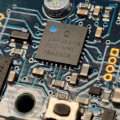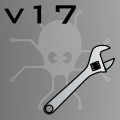Delphi, Free Pascal, and Lazarus
 The Delphi API is among the first Yoctopuce libraries that we published. A few years later, someone asked us to make it also compatible with Lazarus, which we did gladly, but without advertising it. Recently, we were asked if we couldn't make it so that the library works with the Linux version of Lazarus as well.
The Delphi API is among the first Yoctopuce libraries that we published. A few years later, someone asked us to make it also compatible with Lazarus, which we did gladly, but without advertising it. Recently, we were asked if we couldn't make it so that the library works with the Linux version of Lazarus as well.
| No comment yet | Read more... |
Recovering from an error during a firmware update
 We do everything we can so that the firmware updates of Yoctopuce modules work smoothly and without any hitch. However, it may happen that some external event, such as a power failure or a communication loss, prevents the process to end properly. We are going to see how to reset the module into a working state and restore its configuration parameters when the update process was interrupted.
We do everything we can so that the firmware updates of Yoctopuce modules work smoothly and without any hitch. However, it may happen that some external event, such as a power failure or a communication loss, prevents the process to end properly. We are going to see how to reset the module into a working state and restore its configuration parameters when the update process was interrupted.
| No comment yet | Read more... |
Accessing peripherals from a Web page
![]() During the last few years, Web interfaces have progressively replaced native applications in many area, and more than anywhere else in database-related applications. Web user interfaces can now be made as user-friendly as native user interfaces, but from a functional perspective the Web browser puts some limits, in particular with regard to the use of peripherals on the user machine. However, it is possible to provide a web page access to USB peripherals, as long as the peripherals have been designed accordingly, as for instance Yoctopuce devices.
During the last few years, Web interfaces have progressively replaced native applications in many area, and more than anywhere else in database-related applications. Web user interfaces can now be made as user-friendly as native user interfaces, but from a functional perspective the Web browser puts some limits, in particular with regard to the use of peripherals on the user machine. However, it is possible to provide a web page access to USB peripherals, as long as the peripherals have been designed accordingly, as for instance Yoctopuce devices.
| No comment yet | Read more... |
Experiment with USB power supplies
![]() YoctoHubs make it very easy to create DIY projects that are remotely controlled by a server. All you have to do is to provide a network connection and a power supply, a simple USB charger can do the trick. We recently asked ourselves the following question: all USB chargers are probably not equivalent in terms of efficiency, but up to what point?
YoctoHubs make it very easy to create DIY projects that are remotely controlled by a server. All you have to do is to provide a network connection and a power supply, a simple USB charger can do the trick. We recently asked ourselves the following question: all USB chargers are probably not equivalent in terms of efficiency, but up to what point?
| No comment yet | Read more... |
Updating the Yocto-Toolbox app (1.0.17)
 A few weeks ago, we promised you more regular updates of the Yocto-Toolbox Adroid application. A promise made, a promise kept. Despite the move of Yoctopuce into new premises, we managed to add a few new features such as the possibility to configure YoctoHub network parameters directly from this application.
A few weeks ago, we promised you more regular updates of the Yocto-Toolbox Adroid application. A promise made, a promise kept. Despite the move of Yoctopuce into new premises, we managed to add a few new features such as the possibility to configure YoctoHub network parameters directly from this application.
| No comment yet | Read more... |
1 ... 10 ... 20 ... 30 ... 39 40 41 42 43 44 45 46 47 48 49 50 ... 60 ... 70 ... 80 ... 90 ... 100 ... 110 ... 120 ... 130 ... 140 ... 150 151


